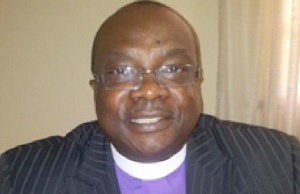“African leaders and followers must stop the too much talk and rather look for better ways to resolve the poor management of their economies,” Right Reverend Dr Seth O. Lartey, Presiding Prelate of the Western West Africa Episcopal District of the A.M.E. Zion Church has advised.
“In Africa we do too much talk. We analyze even ‘analyzation’. We need to stop talking and start doing what is right for our people. Our youth don’t need to be unemployed…there is too much wealth on the continent,” he said.
Speaking at the 115th Session of the East Ghana Annual Conference of the A.M.E Zion Church held in Accra, Rt. Rev. Dr Lartey said when a political party got into office, it was proper that all come out to support that party to succeed for the common good of the country.
The winner-takes-all philosophy, he said, had passed away and today the solution was a win-win, because “what we need now is what is best for the nation so philosophy and leadership have to change,” he added.
“Why can’t Africa get to the place where it can champion its own destiny if you think of the continent being the wealthiest in the world…”
“We need to invest in research and development and get to the place where our products are not being taken out of here to the outside world for them to be brought back to us with value addition and well packaged.
He said the role of the Church in national affairs was still crucial to development because nowhere in the world has a government done it alone, adding that, the Zion Church for instance, has to support, hence its adoption of strategic business plans to support members to help in transforming the economies in West Africa.
The Zion Church, he said, had established East Ghana Church Growth Award programme for its churches that does well, in terms of growth, and had also adopted a programme to take care of distressed churches.
Rt. Rev Dr. Lartey said the Church was currently waiting to obtain authorization from the government to support road construction works in most deprived districts.
General News of Friday, 5 September 2014
Source: GNA

















